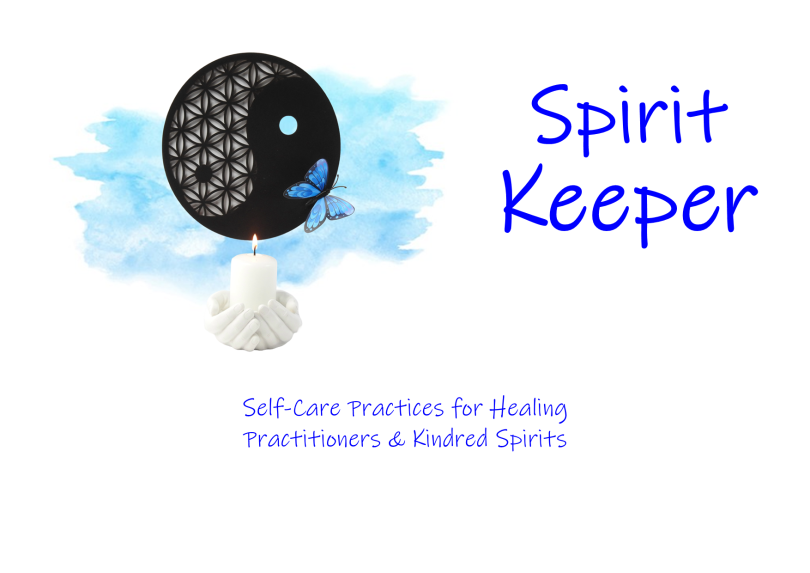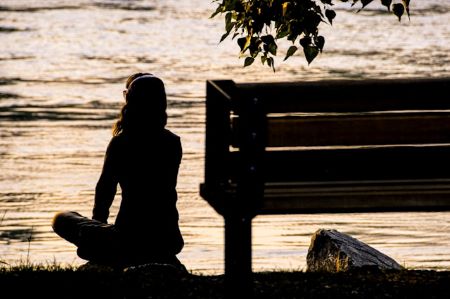Welcome, to Health & Wellbeing Magazine’s Spirit Keeper monthly column. This is the place where you will discover tips and practices for creating, developing and maintaining a personalised self-care practice.
The first month we considered what a Spirit Keeper is and does; last month we looked at the 4 pillars of knowledge: Physician-Patient know, love, heal and free yourself.
In this month’s column, we are going look at your secret learning code and how this can impact whether or not you have a disciplined, dedicated and committed self-care practice. Disciple consciousness is about the willingness to be a life-long learner and master mindset, emotional intelligence and spiritual intelligence. Your specific learning code is the reason you may have tried meditation or a host of other self-care techniques (eating mindfully, relaxing, exercise, contemplation, journalling) and never stuck with it.
Very simply we are often drawn to self-care techniques which we know will be good for us but fail to master & embody it.
I have found in my own life this has been largely due to choosing a technique which does not resonate with my personal learning code.
Ayurveda – Life Knowledge
This system is perhaps the closest to what I believe self-care practice needs to be for modern 21st Century healing facilitators.
Ayur means life and Veda means knowledge. Ayurveda originated in India, and you may wonder why I am bringing Ayurveda into this column. Very simply it is the oldest and most well-documented life-style medicine (holistic) system we know of. It also embraces the 4 commands of know, love, heal and free yourself through a systemised approach to self-care.

Each of these practices were designed to cleanse, strengthen and develop the auric field and physical body. The aim of the self-care practices was to integrate mind, body and spirit in order to allow the soul to fully embody itself during the incarnation. Examples listed below:
Mind – Ayurvedic medicine can include:
- Creative visualisation using multi-sensory techniques.
- Contemplation.
- Yogic breathing and relaxation techniques.
- Releasing emotional issues.
- Affirmations and prayer.
Body – Ayurvedic medicine can include:
- Advice on eating habits and plans.
- Exercises to strengthen the nervous system, lympathic system and muscles of the body (yoga).
- Bowel cleansing.
- Intermittent fasting.
- Massage.
- Taking specific Ayurvedic medications & herbal medicines.
- Grounding techniques.
Spirit – Ayurvedic medicine can include:
- Meditation.
- Mindfulness.
- Devotional prayer and rituals.
- Presence practices.
Traditional Chinese Medicine (TCM)
TCM is a holistic approach to health which has been practiced for thousands of years. It includes various treatments such as acupuncture, herbal medicine, tai chi, and qi gong.
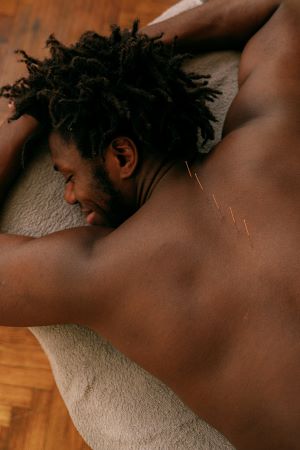
TCM aims to restore harmony and balance by addressing the flow of energy (qi or chi) within the mind-body. The aim is to balance the duality nature of mind, body and spirit by improving the flow of qi.
21st Century Self-Care Practice
The challenge of 21st Century living is feeling overwhelmed by the demands of survival and becoming emotionally challenged by extreme over-sensitivity to an expressed opinion.
By using a combined understanding of Ayurveda and TCM principles, one can develop a self-care practice which aims to balance the duality nature of the mind, body and spirit, improve the flow of qi and also awaken the body, mind and spirit to higher levels of consciousness.
Spirit-Keepers are able to recognise ‘fear’ is the underlying operating principle to many of modern-day ills and discord. They prioritise inner peace and connection with Great Spirit. Spirit-Keepers understand the foundation from which they live life is one of feeling present, grounded, aligned, centred and connected.
They will feel fear from time to time, however, due to their personal experience of connection with Great Spirit, they are able to stop the process over-reaction within themselves (over-thinking, emotionally vomiting over others in social situations, over-eating, over-exercising, over-rationalising etc). They know when they come from a place of inner grace and grit, they are more capable of ‘seeing’ solutions to modern day problems and implementing them appropriately.
Know Yourself
A good self-care practice can be embraced and embodied when we first KNOW ourselves.

There are two aspects to knowing yourself:
- The first is discovering how you use the senses and multiple intelligences to interpret the many environmental signals you receive daily and translate it into meaning.
- The second is about development of skills which enables us to survive and thrive on our journey from birth to death.
Holism & Individualism
Western cultures have embraced many parts of Eastern cultures’ knowledge and wisdom since the start of the 1900s but view them insolation to each other. e.g. meditation. In the west we know meditation improves a variety of physical ailments and mental wellbeing. It is viewed as a single practice much like taking a pill or potion.
Whereas Eastern cultures view meditation as just one part of multiple everyday self-care practices. These multi-sensory practices are designed to ground, centre, align, release, reflect and prepare the body to hold higher levels of information.
For those who are serious about healing and integrating their mind, body and spirit in order to embody their soul (what the Buddhists refer to as the first level of consciousness) they understand a diligent daily self-care practice comes from a place of holism as well as individualism. It is dialectical in its thinking and approach. Let’s take meditation again to explain this.
We now know much more about the biochemistry and neurological benefits of the mind-body interface when meditating. These have been tracked by bio-scientists and neurologists. Meditation has also been studied by sociologists who have measured the impact on local areas of crime when large groups of people meditate. Thus, any individual who wishes to become less stressed will want to embrace meditation to enjoy these benefits. This individual practice is one of the top recommendations for managing stress today. A single practice.
However, the individual who wishes to be a Spirit-Keeper will use meditation as part of a sequence of multi-sensory techniques for self-care with the specific end result of preparing their mind, body and spirit to embody their soul consciously. Their self-care routine will include practices which flow from one to another over a period of 30 minutes to 1 hour. E.g. Stretching and toning the body’s muscles with specific exercises, grounding, centering, balancing the chakras, cleansing the aura, reading motivational texts, contemplating, journalling, meditation and prayer.
What I have learned as I started to implement practices into what I refer to as the Mystical Hour of Inner Power, was my life needed to become a living prayer. Thus, whilst I focused on self-care practices to integrate mind, body and spirit, what I was preparing myself for was a daily way of living in the present with presence. This place of grounded spirituality and way of living is something many masters from a variety of religious background have understood and we often refer to them as saints or enlightened beings. However, despite these individuals telling us many of the self-care practices required to develop and master ourselves, we lack consistent self-discipline in embodying them.
Why?
What Is Your Learning Style?
I believe the reason many of us drop a practice like meditation, shadow work, emotional releasing or physical exercise is simply because we choose a format which doesn’t resonate with our natural learning style. Accelerated learning recognises learning is multi-sensory in its nature and application. Certainly, when we were babies and young children our toys reflected this. However, by the time we are heading towards secondary school, many of our multiple intelligences have been shut down by an educational system which heavily focuses on information being shared in a visual/auditory format.
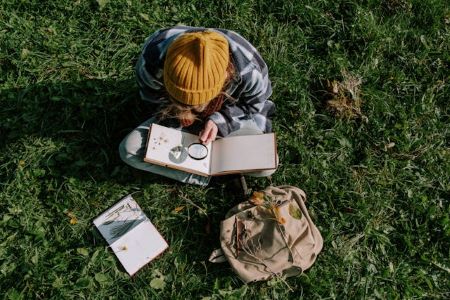
True healing and connection to Great Spirit requires us to unify the mind, body and spirit through mastering multiple sensory senses and intelligences. This is where the power of the Ayurvedic System lies. True healing and connection to Great Spirit also requires us to balance the duality we experience in everyday living and improve the flow of energy and healing. This is where the power of the TCM system lies. Each pathway is individualistic and holistic and promotes self-care of mind, body and spirit.
Before you are likely to embody a dedicated and committed self-care practice as a healing practitioner, I would recommend you learning your secret learning code and how this can assist you to make better choices when it comes to practices like meditation, contemplation, prayer, breathwork, releasing, reprogramming, stress management etc.
Attached to this month’s column is a link to a questionnaire which allows you to look at your personal Secret Learning Code as it stands right now. Once you know your personal code, you can then set about developing a daily and committed self-care practice which utilises your strengths and allows you to begin embracing those senses and intelligences which are not yet developed.
My personal learning code when I first started using accelerated learning techniques was visual kinesthetic auditory. Over the course of my life and healing journey, this has now become more holistic in practice and also embraces further senses and intelligences.
Lifestyle Medicine
Modern interpretation of life-style medicine focuses on preventing and treating chronic diseases through lifestyle changes. This can include:
- Promoting healthy eating.
- Promoting physical activity.
- Promoting stress management.
- Avoiding harmful habits and behaviours like excessive eating, smoking and alcohol consumption.
You will see that this interpretation is very much physical based and brushes lightly on emotional issues through stress management. For Spirit-Keepers, lifestyle medicine is:
- Healing with awareness on a daily basis.
- A set of self-care practices which promote being grounded.
- A set of self-care practices which promote being centred and aligned energetically and physically.
- A set of self-care practices which promote being present in daily tasks of daily living.
- A set of self-care practices which promote mental-emotional and physical wellbeing.
- A set of self-care practices which promote connection with Great Spirit daily.
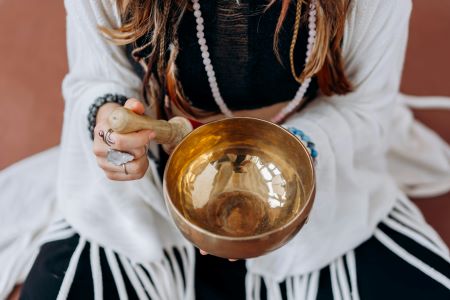
A good daily self-care practice embodies a set of practices which allow an individual to release physical, emotional and mental stresses from daily living. It also focuses on strengthening the body’s physical and energetic systems through physical exercise, mental-emotional releasing and spiritual rituals which enable us to feel connected to Great Spirit.
Monthly Research Project
Last month I encouraged you to investigate the vagus nerve and why it is important for awakening and strengthening the body electric (nervous system). Neuro-science has advanced our understanding of the mind-body interface a great deal in the last 100 years and it is starting to demonstrate the wisdom from Ayurveda (which includes yoga) and TCM.
I personally believe it is important for Spirit-Keepers to learn how to align themselves energetically frequently throughout the day and use techniques which calm the vagus nerve. This ability to constantly check-in and re-align and be present are much needed in the fast paced living of today’s world.
I also personally believe the vagus nerve is the physical manifestation of what Ayurveda refers to as the Sushumna Nadi. It’s importance in the awakening of our chakras and strengthening of the auric field is paramount for the unification and integration of mind, body and spirit.
This month continue researching techniques of calming vagus nerve over-stimulation.
Words of Wisdom
“When we are in the present moment, our work on Earth begins.”
~ Reshad Feild

Next month…
Next month we will begin the journey of learning self-care practices from the perspective of learning styles. We will start with meditation.
Until next month. From one kindred spirit to another – be safe, be well, be authentically you.
In gratitude
Kathleen

